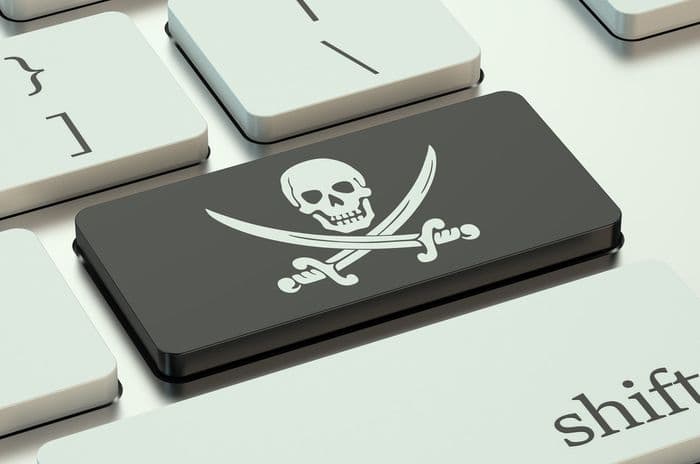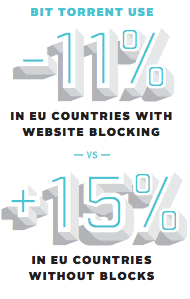Home > TV & Broadband > News > UK BitTorrent traffic dipped 20% in 2013: do ISP blocks work?
UK BitTorrent traffic dipped 20% in 2013: do ISP blocks work?
UK BitTorrent traffic fell by 20% during 2012 and 2013, a report on digital music claimed this week.

The International Federation of the Phonographic Industry (IFPI) study into the state of the online music industry said that filesharing traffic had likely declined due to court-ordered ISP blocks on sites like The Pirate Bay.
"Website blocking measures implemented by ISPs have been effective," the report says.
"Between January 2012 and July 2013, European countries where blocking orders are in place saw BitTorrent use decline by 11%, while European countries without such orders saw BitTorrent use increase by 15%."

At present, over 30 piracy websites are blocked in the UK.
IFPI: more site blocking
The IFPI would like to see that number increase and a renewed focus on blocking torrent websites accessed through mobile networks.
Rights holders have spent millions on persuading the courts to make ISPs block websites sharing copyrighted material and they have been more successful in the UK than anywhere else.
Since the initial 2011 ruling sites have been blocked regularly, swiftly and sometimes in large groups.
We're certainly set up to block more websites at broadband provider level.
But it's far from clear whether ISP blocks are actually an effective method of curbing piracy.
Did ISP blocks work?
For one thing, it doesn't seem all that clear that filesharing traffic is actually decreasing.
Advocates of ISP blocks point to The Pirate Bay, one of the most famous torrent networks and once the 73rd most visited website in the world which has now lost over 80% of its users since being forced to change domain name 6 times last year.
"For the first time in well over a decade, 2014 may not be the year of the pirate," Dr David Price, Director of Piracy Analysis at domain registration firm NetNames said in a recent PC Pro article.
Yet Dr Price's own recent report on online infringement found that in Europe the amount of infringing bandwidth increased by 165.4% between 2010 and 2012 and on a per user basis by the same amount (that is, the increase wasn't just driven by a minority; most infringers downloaded more).
Price concludes that "despite [some] instances of success, and despite the wide availability in some regions of methods to consume material legitimately, the piracy universe not only persists in attracting more users but hungrily consumes increasing amounts of bandwidth."
In this context the IFPI's focus on just one filesharing protocol - BitTorrent - seems like a rather dubious way to assess the viewing and sharing of copyrighted files as a whole.
It seems likely that in countries with ISP blocks in place people are simply moving to new methods for sharing files.
Just hours after a site is blocked by UK ISPs by court order hundreds of mirror sites become available that provide exactly the same torrent database as their predecessor.
Even in the UK, the legal process to shut down a torrent site can be lengthy, by the time the court order has been passed, the torrent sites have already cloned their website numerous times and distributed the same torrents all over the internet or set up proxies to allow simple access despite the domain block.
In some cases, sites claim, that blocks have created a 'Streisand Effect', publicising the filesharing site and driving even more traffic and more infringement.
The rise of legal services
In addition, if filesharing traffic is declining it's far from clear that ISP blocks are the reason.
The rise of legal streaming services such as Netflix, the newly minted Amazon Prime Instant video, Spotify, Vudu and Crackle have been credited with helping to reduce the amount of film and video material downloaded through torrent networks.
Many users prefer the ease of access that legal streaming websites provide and seem more than willing to pay for a clearer interface and higher quality streaming.
Interestingly, this move from illegal to legal services is even something Netflix consciously account for when deciding which programmes to buy.
"When purchasing series, we look at what does well on piracy sites," the streaming giant's Head of Content Acquisition, Kelly Marryman said recently.
This tactic appears to be beneficial for all sides as it provides content that is obviously in demand to users, as well as helping cut down on the torrent usage, benefiting the content creators.
However, it is harder to believe, as the IFPI do, that perhaps partly as a result of ISP blocks and court orders, the general public are becoming more empathetic to the artists and companies affected by piracy, and are choosing to use the sites less frequently for that reason.
The IFPI advocated encouraging this line of thinking in this week's report.
"Notification programmes aimed at educating users about the value of copyright" have seen some success in France, the report says, where P2P traffic has declined 27% since September 2010.
Notification in the UK has been on ice since it was passed into law under the Digital Economy Act and has mostly only provoked nuisance legal disputes.
Receive consumer updates that matter in our newsletter

We are independent of all of the products and services we compare.

We order our comparison tables by price or feature and never by referral revenue.

We donate at least 5% of our profits to charity, and we aim to be climate positive.
Latest News

27 February 2026
Social tariff uptake still below 10% despite wider availability
23 February 2026
Sky Atlantic to launch on Virgin TV in April
20 February 2026
Virgin Media complaints hit six-year lowReceive consumer updates that matter in our newsletter


